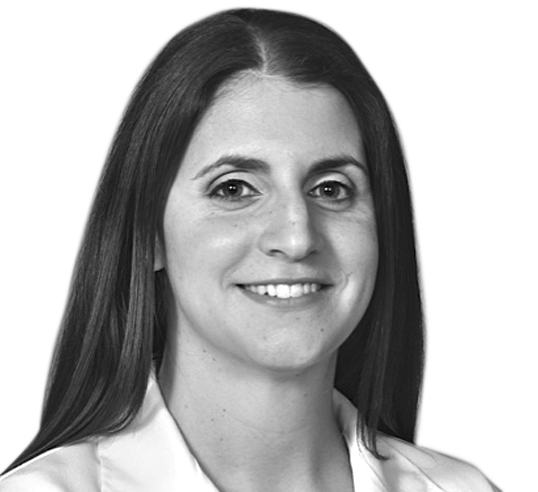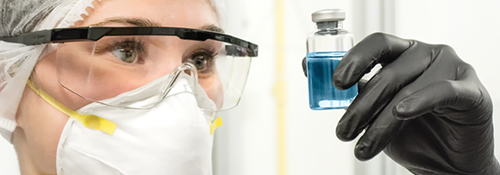TEMPLATE OF LIVE EVENT PARENT
Hazardous drug compounding presents particular issues and challenges to the compounding pharmacy including regulatory compliance and practical application. This application-based live activity will provide compounding pharmacists and technicians with the tools required to enhance their competency and understanding as it relates to hazardous compounding and its associated health and safety risks. Participants will learn about personal protective equipment, engineering controls, safe handling practices and will be afforded the opportunity to review closed system transfer device components. Participants of the live activity will learn how to minimize and control hazardous drug contamination and exposure to enhance the safety and well-being of personnel. Following this process, the participant will have learned how to protect themselves and the environment through proactive training, powder containment techniques and safe disposal of hazardous drugs. There will be an in-depth assessment of the advantages of preemptively regulating health and safety in the pharmacy as well as a review of current hazardous compounding regulations and standards of practice. Finally, this activity will inform participants of the necessary procedures and behaviors required to implement in their day-to-day practice. Emergency situations such as spills and contamination will be discussed along with their appropriate corrective and preventive measures.
Intended audience
Pharmacists and technicians engaged in hazardous drug compounding.
Learning Objectives
FOR PHARMACISTS
- Describe the hazardous compounding regulatory framework and standards of practice including OSHA, NIOSH and USP <800>.
- Examine the risks of working with hazardous drugs in the pharmacy and healthcare continuum.
- Evaluate the critical strategies required to minimize occupational hazardous drug exposure in the pharmacy.
- Assess hazard communication and training requirements for hazardous compounding.
- Select safety and personal protective equipment required to enhance the safety and well-being of personnel.
- Contrast engineering control requirements and their application in hazardous drug compounding.
- Manage safe handling practices required for hazardous drug handling and compounding.
- Evaluate deactivation and decontamination procedures.
- Examine the advantages of medical surveillance and environmental monitoring.
FOR TECHNICIANS
- Describe the hazardous compounding regulatory framework and standards of practice including OSHA, NIOSH and USP <800>.
- List the risks of working with hazardous drugs in the pharmacy and healthcare continuum.
- Outline strategies and considerations required to minimize occupational hazardous drug exposure.
- Recognize the importance of hazard communication and training requirements for hazardous compounding.
- Select safety and personal protective equipment required for hazardous compounding.
- Describe engineering control requirements and their rationale for use.
- Outline safe handling practices required for hazardous drug handling and compounding.
- Describe deactivation and decontamination procedures.
- List the advantages of medical surveillance and environmental monitoring.
An unrestricted educational grant has been provided by MEDISCA Inc.

CHRISTINE ROUSSEL, PharmD, BCOP
Clinical Pharmacy Manager, Doylestown Hospital
Disclosure: MEDISCA Consultant
Christine Roussel is a board certified oncology pharmacist and the Clinical Pharmacy Manager at Doylestown Hospital in Pennsylvania where she is responsible for clinical program development and compounding activities. Dr. Roussel also serves as adjunct professor at the University of the Sciences in Philadelphia. Dr. Roussel is an expert in hazardous compounding and has served as the Cancer Center Pharmacy Manager at the Einstein Healthcare System where she was instrumental in directing the design and clinical workflow processes and protocols for the dedicated on-site oncology pharmacy facility. As well, she managed the planning, building and maintenance of the sterile hazardous drug compounding facility. Dr. Roussel also established an outpatient specialty pharmacy service line for cancer center patients, providing clinical and copay-assistance guidance to patients. In her previous role as the Vice President of Pharmacy Operations for the OncoMed Oncology Pharmacy of Philadelphia, a closed door specialty pharmacy, Dr. Roussel oversaw training of all clinical staff on treatment guidelines, patient counseling, regulatory requirements, compounding techniques, and the safe handling of hazardous chemotherapy agents.
Dr. Roussel oversaw the maintenance of the cleanroom facilities and wrote the company’s policies and procedures for their sterile compounding program. Dr. Roussel received her Bachelor of Science in Toxicology and her Doctorate in Pharmacy from the Philadelphia College of Pharmacy at the University of the Sciences and is currently an active member of the American Society of Health System Pharmacists (ASHP), the American Pharmacist Association (APhA), and the Hematology Oncology Pharmacists Association (HOPA). Dr. Roussel is also an active member of the Legislative Action Committee for the Pennsylvania Society of Health Systems Pharmacy.
CPE Credits: 12 CPE Hours = 1.2 CEUs
Joint Accreditation Status (University of Florida College of Pharmacy / LP3 Network)
Activity type: Application-based
UAN: 0012-9999-15-389-L04-P/T for pharmacists and technicians
To receive CPE credits for the live component, participants must demonstrate full and satisfactory participation, and submit a completed evaluation to the University of Florida College of Pharmacy.
Participants registered in the United States can obtain a statement of credit from their NABP e-profile. The University of Florida College of Pharmacy will report CPE credits to the CPE Monitor. Participants registered other than in the United States will receive a statement of credit by mail.


 Facebook
Facebook X
X LinkedIn
LinkedIn Forward
Forward